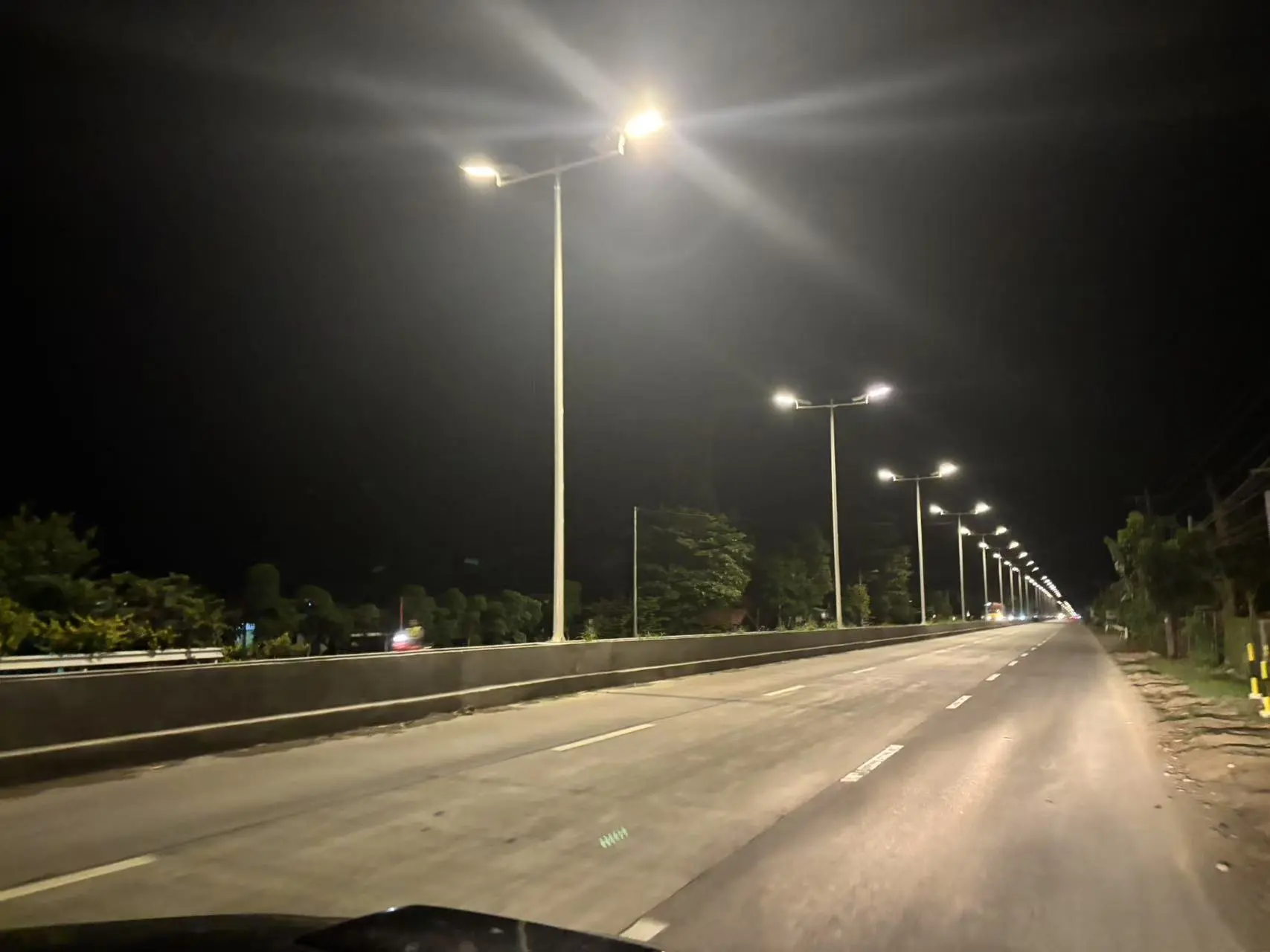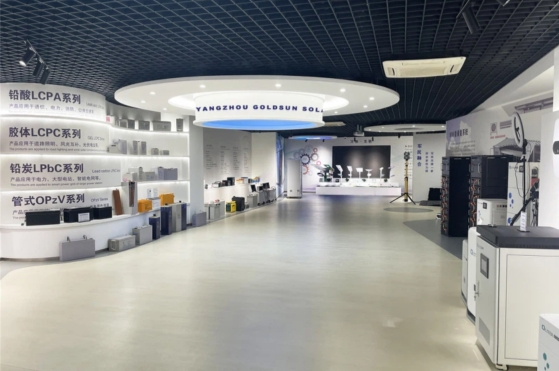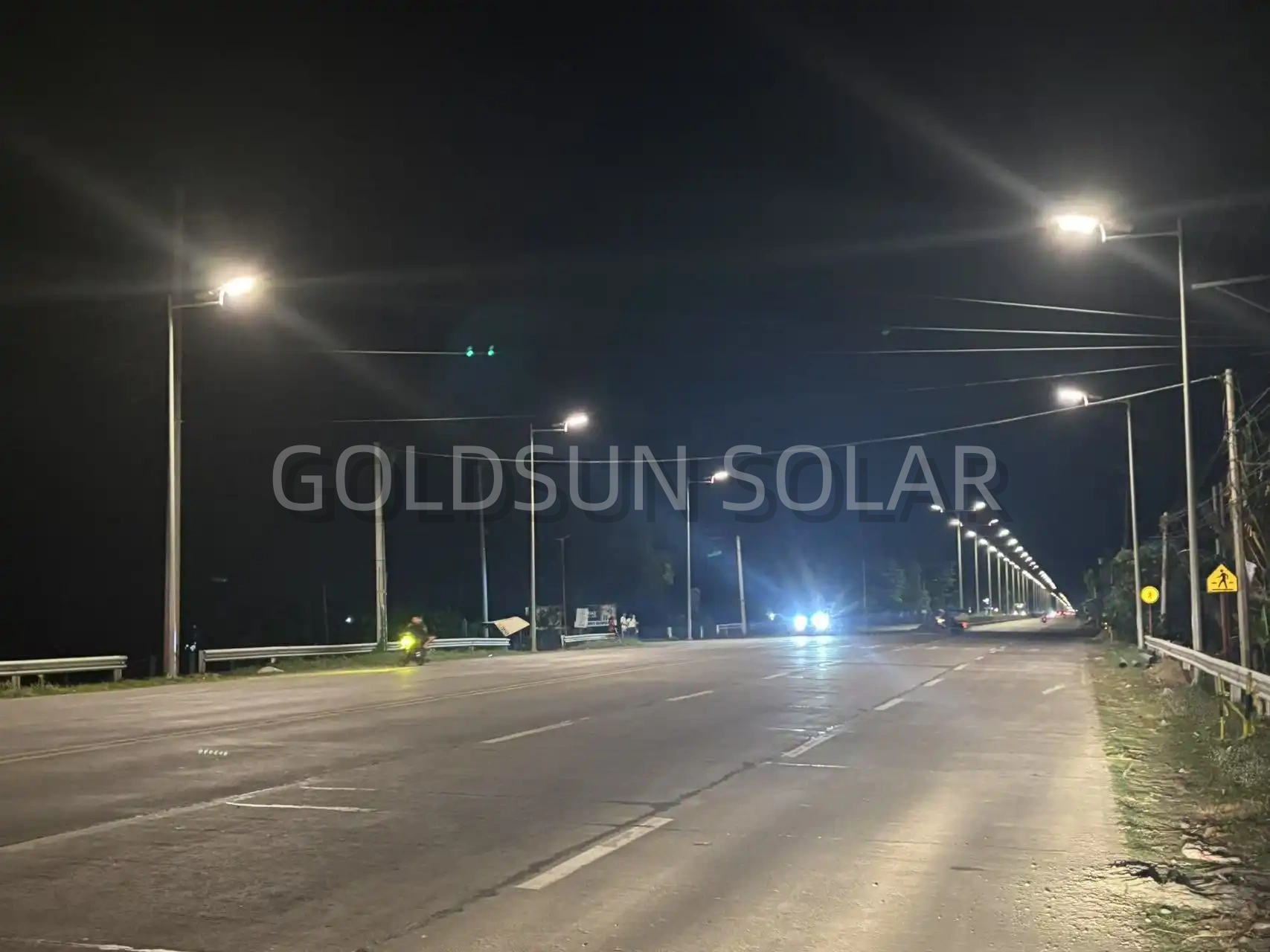Top 7 Best Solar Street Lights for Africa in 2025
As Africa continues to embrace sustainable energy solutions, solar street lights have emerged as a game-changing technology for urban and rural development. With advancements in solar technology and increasing demand for eco-friendly lighting solutions, the market for solar street lights in Africa is set to expand significantly by 2025. This article explores the top 7 best Solar Street Lights Africa in 2025, highlighting their features, benefits, and potential impact on the continent's infrastructure and energy landscape.

What are the key factors to consider when choosing solar street lights for African countries?
Durability and Weather Resistance
When selecting solar street lights for African countries, durability and weather resistance are crucial factors to consider. The diverse and often harsh climatic conditions across the continent demand robust lighting solutions that can withstand extreme temperatures, high humidity, and intense sunlight. Solar street lights designed for Africa must incorporate corrosion-resistant materials, such as aluminum alloys or stainless steel, to ensure longevity and reliability. Additionally, the lighting fixtures should be equipped with IP65 or higher-rated waterproof enclosures to protect sensitive components from dust, rain, and other environmental elements. High-quality solar panels with tempered glass covers and sealed battery compartments are essential features that contribute to the overall durability of solar street lights in African settings.
Energy Efficiency and Battery Life
Energy efficiency and battery life play a vital role in the effectiveness of solar street lights in Africa. With many regions experiencing inconsistent sunlight throughout the year, it is crucial to select lighting systems that can maximize energy harvesting and storage capabilities. Advanced solar street lights designed for African markets often incorporate high-efficiency monocrystalline or polycrystalline solar panels, which can generate more power even in low-light conditions. The battery technology used in these lights should offer extended life cycles and deep-discharge protection to ensure reliable performance over many years. Lithium-ion batteries are becoming increasingly popular for solar street lights in Africa due to their higher energy density, longer lifespan, and improved performance in varying temperatures compared to traditional lead-acid batteries.
Illumination Quality and Coverage
The quality of illumination and coverage area are essential considerations when choosing solar street lights for African countries. LED technology has revolutionized the solar lighting industry, offering higher luminous efficacy and longer lifespans compared to traditional lighting sources. When evaluating solar street lights for Africa, it is important to consider the lumen output, color temperature, and beam angle of the LED fixtures. High-quality solar street lights should provide uniform illumination with minimal glare and light pollution. Additionally, smart lighting controls, such as motion sensors and dimming capabilities, can help optimize energy consumption and extend battery life. The coverage area of solar street lights is another critical factor, as it determines the number of fixtures required for a given space. Manufacturers of solar street lights for Africa often offer a range of options with varying pole heights and light distribution patterns to suit different applications, from rural roads to urban centers.
How do solar street lights contribute to sustainable development in Africa?
Reduced Dependence on Grid Electricity
Solar street lights play a significant role in reducing Africa's dependence on grid electricity, contributing to sustainable development across the continent. By harnessing the abundant solar energy available in many African countries, these lighting systems offer a reliable and cost-effective alternative to traditional grid-powered street lights. This reduced reliance on centralized power infrastructure is particularly beneficial in remote and underserved areas where grid expansion is challenging and expensive. Solar street lights for Africa are designed to operate independently, storing energy during the day and providing illumination throughout the night without the need for expensive transmission lines or ongoing electricity costs. This autonomy not only improves energy security but also allows for rapid deployment of lighting infrastructure in areas previously left in the dark, enhancing safety and economic activities in these communities.
Environmental Benefits and Carbon Footprint Reduction
The adoption of solar street lights in Africa brings significant environmental benefits and contributes to reducing the continent's carbon footprint. Unlike conventional street lighting systems that rely on fossil fuel-generated electricity, solar-powered lights produce zero emissions during operation. This clean energy solution helps African countries meet their climate change commitments and improve air quality in urban areas. Furthermore, the use of long-lasting LED technology in solar street lights reduces the frequency of bulb replacements, minimizing waste and the environmental impact associated with disposal. The environmental benefits of solar street lights extend beyond carbon reduction, as they also help mitigate light pollution through better-directed illumination and smart control systems. By choosing solar street lights, African nations can demonstrate their commitment to sustainable development and set an example for other regions in the fight against climate change.
Economic Empowerment and Job Creation
The widespread implementation of solar street lights in Africa has the potential to drive economic empowerment and create new job opportunities across the continent. As the demand for solar lighting solutions grows, local industries involved in manufacturing, installation, and maintenance of these systems are likely to expand, generating employment in both urban and rural areas. The solar street light industry can provide opportunities for skilled technicians, engineers, and entrepreneurs, fostering innovation and knowledge transfer in the renewable energy sector. Moreover, the improved lighting infrastructure enabled by solar street lights can extend business hours and enhance safety in commercial areas, leading to increased economic activity and prosperity. In rural communities, solar street lights can facilitate the development of micro-enterprises and cottage industries, allowing for extended working hours and improved productivity. By investing in solar street lighting, African countries can stimulate economic growth while simultaneously addressing energy access challenges and promoting sustainable development.
What are the latest technological advancements in solar street lights for African markets?
Smart Lighting Controls and IoT Integration
The latest technological advancements in solar street lights for African markets include smart lighting controls and Internet of Things (IoT) integration. These innovations are revolutionizing the way solar street lights operate, making them more efficient and adaptable to local needs. Smart lighting controls allow for remote monitoring and management of solar street lights, enabling real-time adjustments to light intensity based on ambient conditions or pedestrian activity. This not only optimizes energy consumption but also extends the lifespan of the batteries and LED fixtures. IoT integration in solar street lights for Africa opens up new possibilities for data collection and analysis, providing valuable insights into urban planning, traffic patterns, and energy usage. Some advanced systems even incorporate air quality sensors or security cameras, transforming solar street lights into multi-functional smart city assets.
Advanced Battery Technologies
Advanced battery technologies are at the forefront of solar street light innovations for African markets. As energy storage is crucial for the reliability of off-grid lighting systems, manufacturers are continually improving battery performance and longevity. Lithium iron phosphate (LiFePO4) batteries are gaining popularity in solar street lights for Africa due to their excellent thermal stability, long cycle life, and improved safety compared to other lithium-ion chemistries. These batteries can withstand the high temperatures often experienced in many African regions without significant degradation in performance. Another emerging technology is the use of sodium-ion batteries, which offer a more sustainable and cost-effective alternative to lithium-based solutions. These advancements in battery technology are enabling solar street lights in Africa to operate more efficiently and reliably, even in challenging environmental conditions.
High-Efficiency Solar Panels and LED Fixtures
High-efficiency solar panels and LED fixtures are key technological advancements driving the performance of solar street lights in African markets. The latest generation of solar panels for street lighting applications boasts improved conversion efficiencies, allowing for greater energy harvesting even in areas with lower solar irradiance. Bifacial solar panels, which can capture light from both sides, are becoming increasingly common in solar street light designs for Africa, maximizing energy generation in various installation scenarios. On the illumination side, advancements in LED technology have led to fixtures with higher lumens per watt ratios, providing brighter and more uniform lighting while consuming less energy. Some cutting-edge solar street lights for Africa now incorporate adaptive LED drivers that can adjust light output based on battery charge levels, ensuring consistent illumination throughout the night even during periods of low solar energy input. These technological improvements in solar panels and LED fixtures contribute to the overall efficiency and reliability of solar street lighting solutions for African communities.
Conclusion
The future of Solar Street Lights Africa looks promising, with technological advancements and increasing adoption driving the market forward. The top 7 best solar street lights for Africa in 2025 will likely feature a combination of durability, energy efficiency, and smart capabilities to meet the continent's diverse needs. As solar street lighting continues to play a crucial role in sustainable development, economic growth, and improved quality of life across Africa, it is essential for stakeholders to stay informed about the latest innovations and best practices in this rapidly evolving field. By embracing these advanced lighting solutions, African nations can illuminate their path towards a brighter, more sustainable future.
Yangzhou Goldsun Solar Energy Co., Ltd. specializes in solar street lights, offering an impressive production capacity of 10,000-13,500 sets annually. With ISO9001 certification and products meeting CE, RoHS, SGS, and IEC 62133 standards, we have a global presence, having installed over 500 projects in 100+ countries, including UNDP, UNOPS, and IOM. Our solar lights are backed by a 5-year warranty, and we offer customized solutions with OEM support. We ensure fast delivery and secure packaging. Contact us at solar@gdsolarlight.com for inquiries.
References
- African Development Bank Group. (2024). Lighting up Africa: The role of solar street lights in sustainable urban development.
- International Energy Agency. (2024). Solar PV in Africa: Market trends and opportunities for 2025 and beyond.
- United Nations Environment Programme. (2023). Sustainable lighting solutions for African cities: A comprehensive guide.
- World Bank Group. (2024). Off-grid solar lighting in Africa: Impact assessment and future projections.
- Renewable Energy World. (2025). Top innovations in solar street lighting technology for developing markets.
- African Solar Industry Association. (2025). Annual report on solar street light adoption and market growth in Africa.

Share your inquiry, and receive a tailored quotation!

Yangzhou Goldsun Solar Energy Co.,Ltd.
